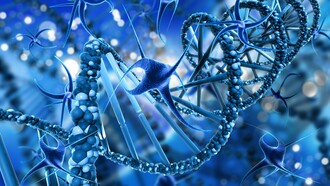Success in creating effective AI, could be the biggest event in the history of our civilisation. Or the worst. We just don’t know. So we cannot know if we will be infinitely helped by AI, or ignored by it and side-lined, or conceivably destroyed by it.
(Legendary physicist Stephen Hawking)
Artificial Intelligence (AI) is the term to describe a machine's learning, logic, reasoning, perception and creativity which were once considered unique to humans but now replicated by technology and use in every industry.
Artificial Intelligence is the use of computer science programming to imitate human thought and action by analysing data and surroundings, solving or anticipating problems, learning of self-teaching or adapting to a variety of tasks. AI can relieve humans of various repetitive tasks. The technology can learn work once and repeat it, as many times as desired by its human programmer. AI makes it possible for machines to learn from experience, adjust to new inputs and perform human-like tasks, from chess-playing computers to self-driving cars, which rely heavily on deep learning and natural language processing.
The basic objective of Artificial Intelligence, or the stimulation of cognitive behaviour, is to enable computers to perform such intellectual tasks as decision making, problem solving, perception, understanding human communication in any language and translating among them.
AI is not only a technology; it is more and more part of our daily lives. Every day we are witnessing new kinds of developments in each sphere of life, from politics to economics. Thanks to technology, Artificial Intelligence and the Internet of Things (IoT) we can easily access many points we could not reach before.
From the research we do on the Internet to the goods that come to our door with a single click, technology is directly in our lives. Artificial Intelligence has revolutionised technology in all industries and solved many problems faced by humanity.
AI is the simulation of human intelligence processes by machines especially computer systems. These processes include learning, reasoning and self-correction. Some of the applications of Artificial Intelligence include expert systems, speech, recognition and machine vision.
Machine Learning (ML) is an application of Artificial Intelligence that provides systems the ability to automatically learn and improve from experience without being explicitly programmed. ML focuses on the development of computer programs that can access data and use them to learn for themselves. ML is the concept that a computer program can learn and adapt to new data without human intervention. ML is a field of Artificial Intelligence that keeps a computer's built-in algorithms up to date and allows the machine to identify data and built predictions around them. ML is useful in parsing immense amounts of information and can be applied in a variety of areas, such as in investment, lending, organising news, fraud detection and more. The incorporation of ML in the digital-savvy era is endless as businesses and governments become more aware of the opportunities that Big Data presents.
Investment players in the securities market, financial researchers, asset managers and individual sectors scour through mountains of information from different companies around the world to make profitable decisions. An asset management firm may employ ML in its investment analysis and research area.
The key differences between AI and ML are:
- Artificial Intelligence will go for finding the optimal solution, and leads to intelligence or wisdom;
- Machine Learning will go only for the solution, whether it is optimal or not, and leads to knowledge.
The latest developments in Artificial Intelligence are chatbots, smart cars and IoT devices. The healthcare, banking, logistics and travel sectors all use Artificial Intelligence to provide a superior experience.
A new kind of artificially intelligent chatbot Replika is designed to learn from a person’s writing style and social media feeds, as well as the content of conversations it has with the person. In fact, AI systems have been developed to understand open form content like natural language, social media and email responses.
Powerful solutions and the capabilities of Artificial Intelligence are developing very rapidly, and AI systems have the ability to understand human emotions and respond to them.
One type of AI that is quickly finding its way into most consumers’ homes is the voice assistant such as Apple's Siri, Amazon's Alexa, Google's Assistant and Microsoft's Cortana.
Hanson Robotic's most advanced human-like robot Sophia personifies people’s dreams for the future of AI. Sofia is also a framework for cutting edge robotics and AI research, particularly for understanding human-robot interactions and their potential service and entertainment applications.
Sophia is marketed as a “social robot” that can mimic behaviour and induce feelings of love in humans. The AI program analyses conversations and extracts data that allows it to improve responses in the future.
The Alexa virtual assistant developed by Amazon is learning faster than any other assistant, and can also control several smart devices, using itself as a home automation system. Alexa will typically take a few weeks to learn its owner’s habits using their smart home devices. Using AI technology in the cloud, Alexa builds up a picture of its owners' routines, paying attention to the time of day, weather patterns and even the changing of the season.
Physical AI is the new frontier in robotics research and will have a major impact in the decades to come. Skills development in Physical AI could give birth to lifelike intelligent robots, and these robots would be designed to look and behave like humans or animals, while possessing intellectual capabilities normally associated with biological organisms (like the humanoid robot named Adam in Ian McEwan’s novel Machines Like Me).
In the future, these robots could help humans at work and in daily living, performing tasks that are dangerous for humans and assisting in medicine, caregiving, security, building and industry.
However, Professor Mirko Kovac of Swiss-Federal Laboratories for Materials, Science and Technology Centre of Robotics has said: “The development of robot “bodies” has significantly lagged behind the development of robot “brains” unlike digital AI, which has been intensively explored in the last few decades; breathing physical intelligence into them has remained comparatively unexplored.”
Creating lifelike robots could be made possible by including Physical Artificial Intelligence in the higher education system, developing skills and multidisciplinary AI search and bring us closer to redefining human-robot and robot environment interaction.
AI has many advantages: reduction in human error, risk-taking in place of humans, 24/7 availability, help in repetitive jobs, digital assistance and faster decision-taking.
If coded properly, AI would have a lower error rate than humans. It would have incredible precision, accuracy and speed, and would not be affected by hostile environments, thus able to complete dangerous tasks, explore in space and endure problems that would injure or kill people.
AI can dramatically improve the efficiency of our workplaces and eliminate the necessity for humans to perform tedious tasks. When Artificial Intelligence takes over repetitive or dangerous tasks, it frees up humans, allowing them to perform tasks that involve creativity, and leaves enough room and time for the interpersonal aspects of their lives.
AI makes people’s lives more efficient, powering many programs and services that help them do everyday things, such as connecting with friends and using an email program or ride share service.
The best examples of AI in daily life are travel navigation, smart home devices, smartphones, drones and smart cars. Tesla electric cars are a prime example of how Artificial Intelligence is impacting people’s daily lives, while companies like Amazon and Walmart are investing heavily in drone delivery programs.
The finance industry is using AI to analyse data to find the best avenues for investing money. Banking and the finance industry rely heavily on Artificial Intelligence, taking full advantage of this technology in customer service, fraud protection and more. A simple example is the automated email that a person receives from the bank whenever an out of the ordinary transaction is made.
We are using AI in navigation and travel also, whether we are booking a flight ticket, or using Google or Apple maps for navigating or calling Uber.
In the agricultural industry, some artificial robots are capable of harvesting in a faster, higher way than humans.
We can expect a totally different future for healthcare, with operations being performed by a robot surgeon. A physical surgeon will only be a spectator. Nanotechnology engineers have 3D-printed a lifelike functional blood vessel network that could pave the way towards artificial organs and regenerative therapies.
Social robots can be used in health and educational systems to support therapists and can be programmed to practise vocabulary with children.
Criminal justice algorithms could have a function in supporting the rule of law in the criminal justice system. AI could be used to predict crime and, thanks to AI, we will see judgments from which human bias and the emotional way of thinking of judges have been removed.
Smart weather forecasting has given us a much-needed insight into extreme climatic events and AI has aptly demonstrated its indispensability in analysing smart disaster responses.
Artificial Intelligence and the global use of Big Tech, facial recognition, cybernetics, robotics, drones, 5G, smartphones, cryptocurrencies, bio-digital social programs, autonomous weapons, social manipulation, invasion of privacy, and tracking of information without consent could have potentially harmful effects.
The dangers that AI can pose in the future are:
Invasion of privacy. Privacy is a basic human right, but AI may lead to a loss of privacy in the future. Even today it is possible to track us easily. Latest technologies like facial recognition can identify any individual in a crowd and all security cameras are equipped with it. The data gathering abilities of AI also mean that a timeline of your daily activities can be created by accessing a person’s data from various social networking sites. China is currently working on a Social Credit System that will be powered by AI which will give all Chinese citizens a score based on how they behave. This may include defaulting on loans, parking in the wrong places, smoking in non-smoking areas, playing loud music on trains, etc. Having a low score may mean difficulties in finding employment, a ban of enrolling children in determined schools, a ban on travel, or having a lower social status.
Autonomous weapons. These “killer robots” are military robots and drones that can search their targets and aim independently according to pre-programmed instructions. Almost all technically advanced countries in the world are developing such robots. Future wars would not be fought by humans, and the use of autonomous lethal weapons would be inevitable. But what if such weapons cannot distinguish between their targets and innocent people? A serious problem would be if these killer robots were developed by governments that do not care about human life.
Loss of human jobs. As AI becomes more advanced it will obviously take over jobs that were once performed by humans. According to a report by the McKinsey Global Institute, around 800 million jobs could be lost worldwide due to automation by 2030. Robots do not need to be paid, so the owners of AI-driven companies would make all the profits, increasing the gap between the rich and the poor even further.
AI terrorism. Drones are already being used in terror attacks and autonomous vehicles could be also used to deliver and explode bombs or create guns that could track movement without any human help.
Artificial Intelligence has progressed rapidly, and the future is arriving faster than the predictions shown in the film Minority Report set in 2054. AI will be better than humans in translating languages by 2024, selling goods by 2031 and conducting surgeries by 2053. AI will become an integral part of our lives and it is time to prepare for the age of AI by investing in education and training. The choice remains ours to upgrade our skills and be part of the Fourth Industrial Revolution.















